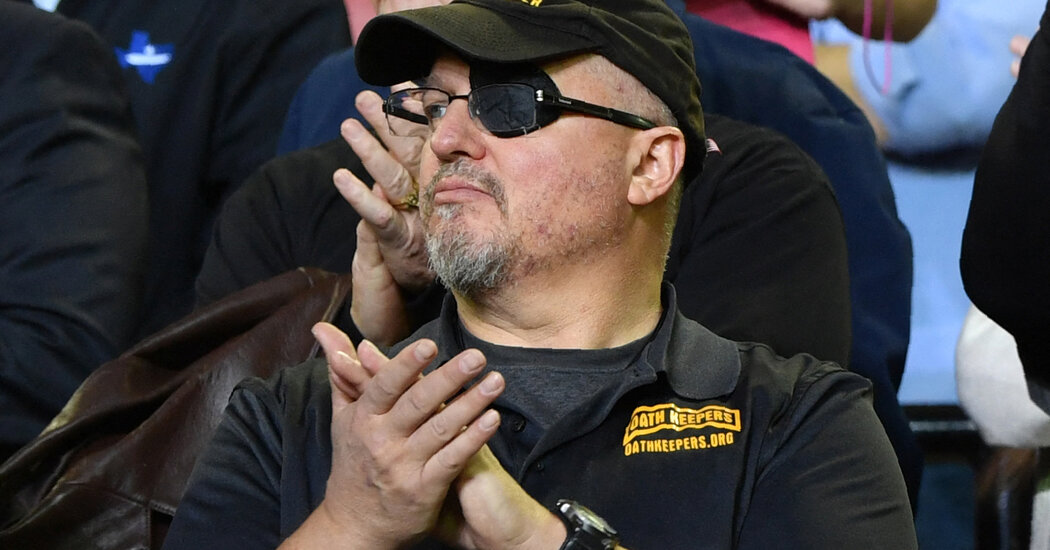A federal judge said Mr. Rhodes, who was charged in connection with the Jan. 6 attack on the Capitol, was a flight risk partly because of “elaborate escape tunnels” in his backyard.
Stewart Rhodes, the leader of the Oath Keepers militia charged with seditious conspiracy in connection with the attack on the Capitol on Jan. 6 last year, was denied bail on Wednesday by a federal judge in Texas who said he was a flight risk partly because of the “elaborate escape tunnels” he had installed in his backyard.
Mr. Rhodes, 56, lived in fear of being “picked up by the feds” and bought hundreds of thousands of dollars of razor wire intended for the perimeter of his property in Texas, Judge Kimberly C. Priest Johnson wrote in a 17-page order. Mr. Rhodes, Judge Johnson said, also stashed “unregistered cars in the woods” near his home.
The charges against Mr. Rhodes, who was accused of sedition this month with 10 other members of his group, are part of the most serious criminal case the Justice Department has brought in connection with the Capitol attack.
Prosecutors have accused about 275 people of obstructing Congress’s duty to certify the 2020 presidential vote. But they had not previously used a sedition charge, with the legal weight and political overtones it carries in a highly polarized country.
Beginning only days after the 2020 election, prosecutors say, Mr. Rhodes oversaw a complex plot “to oppose the lawful transfer of presidential power by force.”
Some members of the Oath Keepers — a group made up largely of current and former law enforcement officers and military veterans — broke into the Capitol in a military-style formation on Jan. 6, 2021, and went in search of Speaker Nancy Pelosi, the indictment said. Others, it said, were stationed in a hotel in Arlington, Va., as an armed “quick reaction force,” ready to rush into Washington if needed.
Mr. Rhodes’s lawyer said he planned to appeal Judge Johnson’s decision.


























